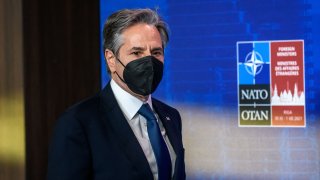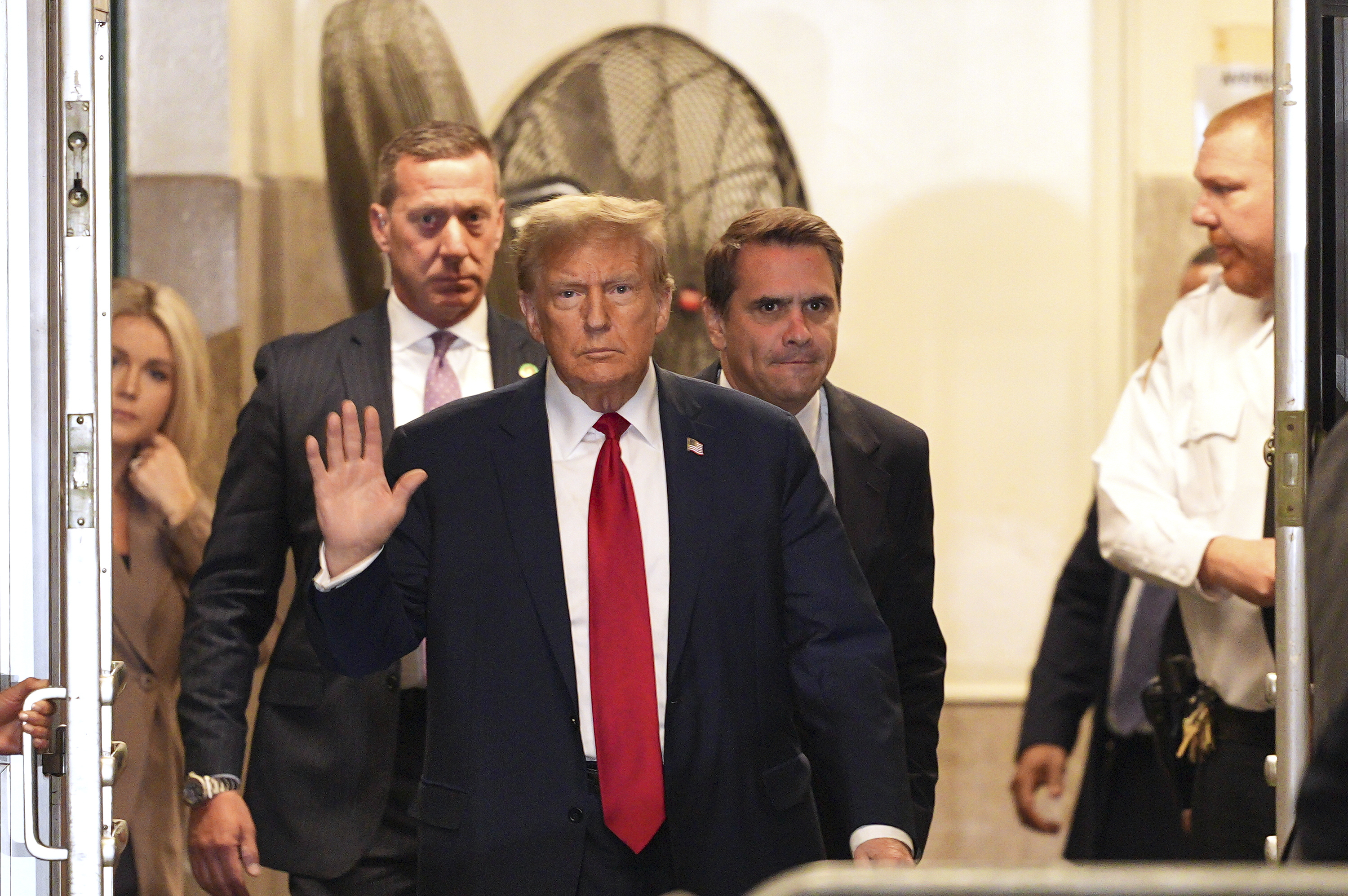
President Joe Biden largely has rallied European allies to pledge as one that they will take tough measures against Russia if it rolls troops into Ukraine. But when it comes to what exactly the United States and Europe are willing to do, the allies haven't looked as united.
Militarily, for example, the United States, Turkey and Britain have stood out for supplying or agreeing to supply anti-tank missiles, armed drones, naval warships and other weapons, along with money to help Ukraine build its defenses. A British military flight taking weapons to Ukraine on Monday flew around German airspace rather than taking the most direct route through it. German officials suggested Wednesday that the issue was their paperwork requirement for such overflights rather than any allied differences over arming Ukraine.
Biden has warned Russian President Vladimir Putin of economic consequences “like none he's ever seen” if Russia invades Ukraine. But some major European allies have demonstrated less enthusiasm for huge economic penalties, which could damage some European economies or put in jeopardy the Russian natural gas that Europeans need to stay warm this winter.
Russian leaders have played down the allies' pledge of a united stand against Russia. In reality, Foreign Minister Sergey Lavrov has insisted, it’s the U.S. calling the shots.
We're making it easier for you to find stories that matter with our new newsletter — The 4Front. Sign up here and get news that is important for you to your inbox.
If the show of unity and the promises of repercussions have made Putin think twice, he's not showing it.
Russia has sent some 100,000 troops toward the Ukrainian border, and U.S. officials said Tuesday they believed Russia was capable of launching an attack. Secretary of State Antony Blinken was in Kyiv on Wednesday, urging Ukrainians and Europeans to remain united.
The West believes Putin has tried to sow dissension among the 27-nation European Union, the United States and NATO — which has 21 EU members — with security demands challenging some of the founding principles of NATO.
U.S. & World
The day's top national and international news.
“The United States didn’t play their game,” EU foreign policy chief Josep Borrell said last week. “Russia wanted to divide us. They failed.”
At least in words, the lining up of Europeans behind U.S. leadership has been a foreign policy success for the Biden administration after it led global allies in a withdrawal from Afghanistan with damaging results.
U.S. work nailing down European commitments to punish Russia if it invades will continue, said Sen. Chris Murphy, D-Conn., who traveled with other senators to Kyiv to meet with Ukrainian leaders last weekend.
“Right now there seems to be slightly greater interest coming from the United States on implementing tough multilateral sanctions than from Europe,” Murphy told reporters Monday. That's “somewhat stunning to me, given the territorial integrity of Europe, not the United States, is at stake."
In October and November, France, Germany and some others in the EU questioned U.S. warnings that Russia's military buildup near Ukraine could signal an imminent invasion. France and Germany initially opposed activating NATO's crisis response planning system. They relented, and it was activated Nov. 30.
On Wednesday, France gave one of the first public signals of a potential split in allied unity. In a speech in Strasbourg, President Emmanuel Macron called for a sweeping “European proposal” that would build a new security order on the continent to deal with Russia.
“We will ensure that Europe’s voice is heard,” Macron said. It was unclear if Macron’s call would resonate among others.
Most U.S. allies now seem determined to prove they’re in lock-step with Biden. U.S. Sen. Rob Portman, a Republican from Ohio, noted to reporters in Washington on Wednesday that Denmark and, he said, countries in Eastern Europe and the Baltics were also now “stepping up" and sending Ukraine arms to defend itself.
A Russian invasion of Ukraine would likely trigger the immediate bolstering of defenses of NATO members close to Russia’s borders, such as Estonia, Latvia, Lithuania and Poland. NATO already has about 5,000 troops and equipment deployed in those countries. The presence of NATO members along Russia's borders already is one of Putin's central complaints against the West.
Countries in southeast Europe — Bulgaria, Romania and Turkey, in particular — are also being sounded out about their willingness to potentially host a NATO battle group of about 1,000 troops and equipment in the Black Sea region.
“There is a number of nations that are interested then in hosting those forces,” Adm. Rob Bauer, the head of NATO’s military committee, said last week.
Because it's not a member of NATO, Ukraine can expect no military help from the alliance as an organization if Russia invades.
When it comes to sanctions, among the European Union and individual European governments, the rhetoric has matched that from the White House and Americans: Russia would incur enormous economic and political costs if Putin sent his forces across the border into Ukraine.
No leaders are publicly discussing the precise nature of possible sanctions, saying it would be a mistake to show their hand. The EU has a track record of imposing sanctions on Russia in unison with the U.S., the U.K, Canada and other allies.
The most talked-about actions include banning Russia from the SWIFT banking system that handles the flow of money around the world and imposing sanctions on Putin's family, his military and political circles and Russian banks.
The British government has lined up firmly behind the tough U.S. line on Ukraine. Prime Minister Boris Johnson spoke to Ukrainian President Volodymyr Zelenskyy last week to back “wide-ranging economic sanctions” should Russia invade, Johnson’s office said.
But there are questions about how much economic pain Britain is willing to inflict on London’s financial district and property market, which are hubs for Russian money.
France's minister for European affairs, Clément Beaune, recently said his country is ready to support sanctions against Russia if needed. He did not elaborate.
Germany, the largest economy in Europe, holds some of the greatest leverage over Russia — a newly built pipeline, Nord Stream 2, that would deliver Russian natural gas directly to Germany and beyond.
Germany’s foreign minister, Annalena Baerbock, said Monday that her country “will do everything to guarantee the security of Ukraine.”
“Any further escalation would carry a high price for the Russian regime — economic, political and strategic,” she said. “And we’re very serious about this.”
But Germany's government has given mixed signals on whether it would keep the pipeline offline if Russia sends troops into Ukraine. That's left Blinken to give assurances in Germany's stead, saying “it would be difficult to see” gas flowing if Russia invades.
___
Cook reported from Brussels. Associated Press writers Frank Jordans and Geir Moulson in Berlin, Jill Lawless in London, Vladimir Isachenkov in Moscow, and Sylvie Corbet in Paris contributed to this report.



